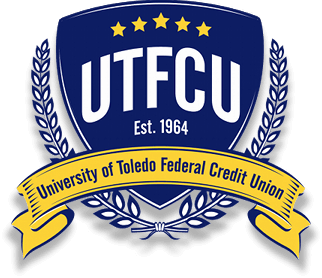Tips to Help Protect You from Fraud and Identity Theft
At UTFCU, helping you protect your account and personal identity information is extremely important to us.
Regularly Monitor Your Accounts for Suspicious Activity
Sign up for UTFCU’s Home Banking to monitor your accounts 24/7
Download and use the UTFCU Mobile App to monitor your accounts 24/7 from your mobile phone or device
Set up free mobile alerts through Home Banking - you will receive timely notices of various account transactions and activity
If you discover unauthorized transactions or account activity on your UTFCU accounts, please contact (419) 534-3770
Verify that you have up-to-date contact information for all your consumer credit cards and online accounts for future reference
Closely Monitor & Use Credit Reporting
Monitor your credit report on a regular basis to minimize the chance of identity theft. You can request and review a free credit report every 12 months through the three major consumer reporting agencies (Experian and Equifax) or at annualcreditreport.com
In reviewing your credit report, look for information that is inaccurate and that could indicate fraudulent accounts opened in your name, such as:
Inquiries from companies that you have not contacted
Accounts that you didn’t open
Debts on your credit card or loan accounts that do not reflect your transactions
Review your personal information as well (name, address, employer, Social Security Number, etc.)
Sign up for fraud alerting and credit monitoring services offered by the three credit bureau reporting agencies. (This is an additional cost, not provided by UTFCU)
How to Safeguard Your Personal Information
Consider paperless options for your bills and financial statements
Sign up for UTFCU e-Statements by logging into Home Banking; click the e-Statement link under the accounts tab to register
Sign up for UTFCU Visa Credit Card alerts at eZCardinfo.com
Do not leave financial statements or other documents containing your personal information in areas where others may have access to them. Frequently, identity theft is committed by relatives, employees or associates with access to your home or business
Be sure to shred discarded mail or documents including your personal information, as the trash is a typical place for identity thieves to seek information
To reduce the chance of mail theft, consider promptly retrieving your incoming mail and taking outgoing mail to your local post office or a U.S. postal mailbox
If you are going to be traveling, put a hold on your mail by calling the U.S. Postal Service at 1 (800) 275-8777 or going online to usps.com
Maintain a list of your credit cards, loans, account numbers and expiration dates in a safe place so you can notify creditors in case of theft or loss
Protect Your Social Security Number (SSN) From Being Stolen
Only provide your SSN to agencies/businesses who require it for action you have initiated
Always ask how your SSN is going to be used and why a merchant needs it
Do not send your SSN over the internet unless you know for certain that the connection is secure (i.e. account opening, tax or government-related forms, etc.)
Do not carry a SSN card in your purse or wallet
Do not use SSN on identification cards
Do not use your full or partial SSN as a Personal Identification Number (PIN) or password
Never store SSN on unprotected computer systems
Shred all no longer needed documents containing your SSN
UTFCU Fraud Protection Technology
Use Home Banking to monitor your accounts 24/7.
Enroll in home/mobile banking
Set up free mobile alerts to monitor account activity
Sign up for UTFCU e-Statements; click the “e-Statement” link under the Member Services tab to sign up

